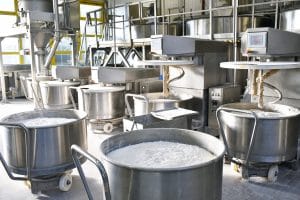 In the food and beverage industry, heat exchangers serve a variety of purposes, and their efficiency relies largely on their ability to keep electrical components safe from contaminants. When dealing with powder and bulk solid foods, this safety net has several implications, from maintaining the integrity of electrical and heat exchanger equipment to ensuring the safety of the foods being processed. Unlike other substances, powder and bulk foods pose several unique challenges, which heat exchangers are uniquely qualified to meet.
In the food and beverage industry, heat exchangers serve a variety of purposes, and their efficiency relies largely on their ability to keep electrical components safe from contaminants. When dealing with powder and bulk solid foods, this safety net has several implications, from maintaining the integrity of electrical and heat exchanger equipment to ensuring the safety of the foods being processed. Unlike other substances, powder and bulk foods pose several unique challenges, which heat exchangers are uniquely qualified to meet.
Protecting Equipment
When any form of powder or residue gets into an electrical enclosure, it can erode and compromise the electrical components within it, leading to a malfunction or total failure. Heat exchangers are designed to never allow the fluid inside of them to interact with the air outside. They also utilize high-quality seals and gaskets that allow them to maintain that level of protection for any enclosure they’re attached to. Much like keeping dust, dirt, and moisture away from electrical components, heat exchanger units can also keep powder and bulk foods out of the equipment that processes it.
Preserving Food Quality
During production and packaging, many types of powder and bulk foods go through processes that require high or low temperatures for sustained periods of time. Heat exchangers are often the most efficient method of providing consistent thermal management. Their seals (along with the fact that many heat exchangers operate in a closed loop) help ensure that no cooling fluid or other substance is allowed to enter the controlled space. In addition to protecting food processing equipment and control panels, heat exchangers also provide a necessary level of safety for the product itself.
To learn more, call Noren Thermal, Inc. in Taylor, TX, at 866-936-6736.







